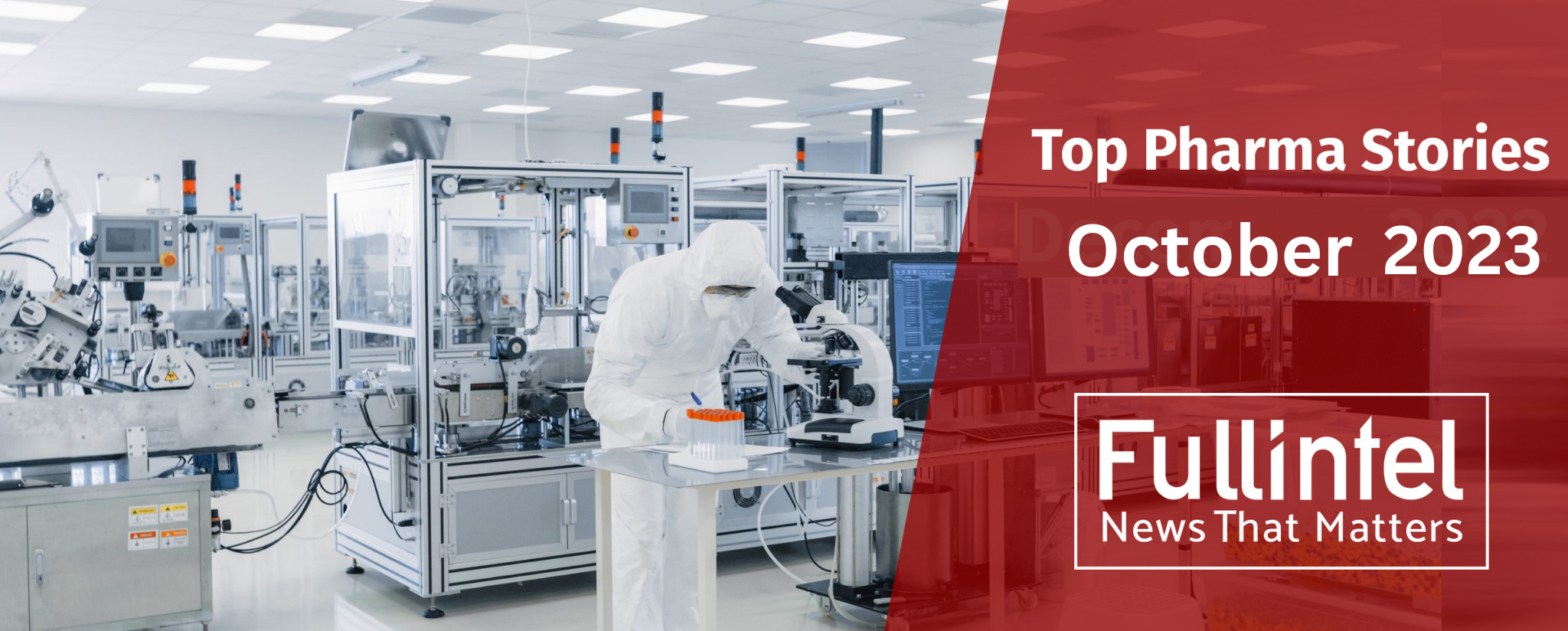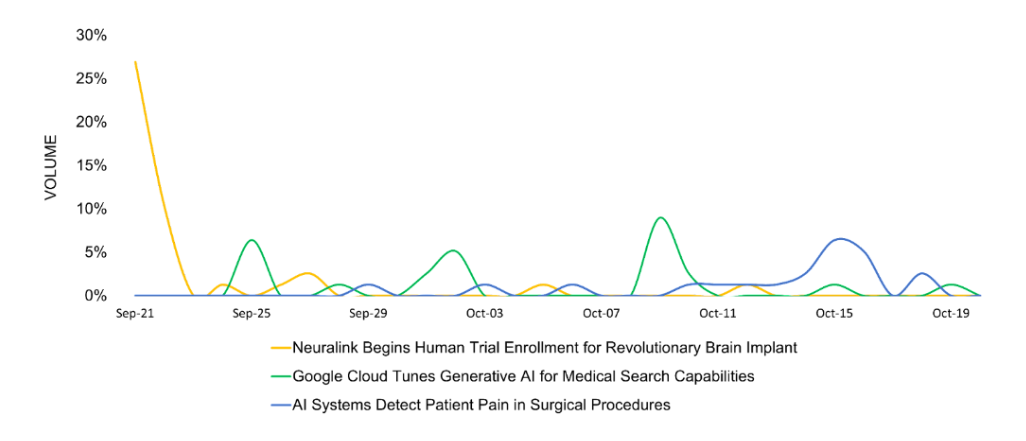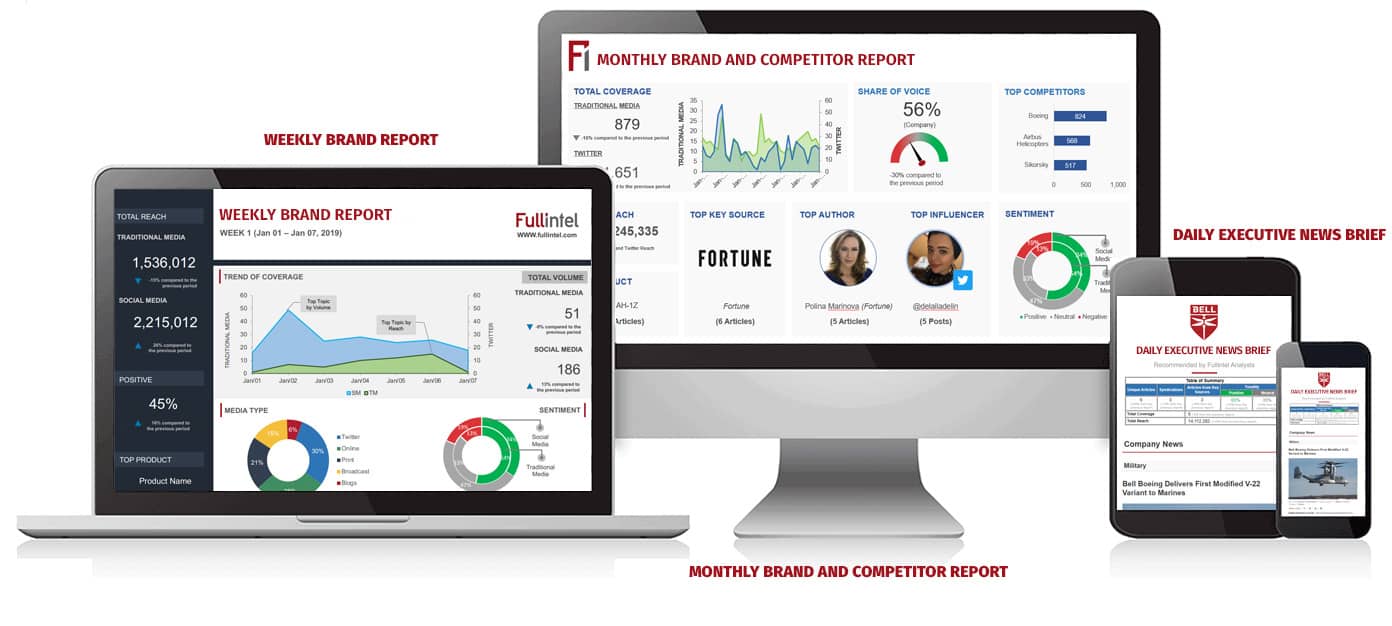
Tech-Driven Healthcare Advancements Steal the Media Spotlight
Cutting-edge technology, particularly artificial intelligence, is revolutionizing various aspects of our lives, with healthcare standing out as a notable example. These innovations are poised to enhance capabilities, streamline processes, and tackle enduring challenges, promising to optimize traditional methods, boost efficiency, and unlock new horizons in treatment and understanding. Each technological leap signifies an opportunity for advancements that can elevate the quality of life, facilitate better decision-making, and unlock unprecedented opportunities. In this context, the Fullintel Hub emerges as a game-changer at the intersection of health and technology, renowned for its ability to curate the latest developments within the pharmaceutical industry from a myriad of media sources. The Fullintel Hub delivers clear insights and user-friendly data, empowering pharmaceutical professionals with the essential tools to navigate the intricate pharmaceutical landscape with confidence and make informed decisions.
Let’s dive into the three most notable innovation-focused news stories this month.
- Neuralink Begins Human Trial Enrollment for Revolutionary Brain Implant
- Google Cloud Tunes Generative AI for Medical Search Capabilities
- AI Systems Detect Patient Pain in Surgical Procedures
October’s Top Stories:
From Brain Implants to Medical Searches, Artificial Intelligence Continues to Dominates Healthcare Headlines

The media highlighted three pivotal stories resonating with the public and industry insiders, including Neuralink’s human trials for an advanced brain implant, Google Cloud’s AI optimization for medical searches, and AI’s potential in surgical pain detection promising advances in patient care.
The advancement of technology and its integration into healthcare and human life remains a key focus in recent developments. Neuralink’s pursuit of bridging the human brain with computer interfaces demonstrates the boundless possibilities of augmenting human capabilities and offering transformative treatments for neurological disorders. Similarly, Google Cloud’s integration of generative AI into healthcare aims to revolutionize the accessibility and efficiency of health records, potentially alleviating administrative burdens and enhancing the quality of care. Another ground-breaking introduction of AI for objective pain assessment during surgical procedures underscores the potential for technology to provide more accurate, unbiased care, revolutionizing traditional methods. Collectively, these innovations induce a shared sentiment of excitement for the technological leaps and the potential benefits they could bring, accounting for 4% of the month’s overall pharmaceutical media attention.

A Break-Down of Recent Trending Stories:
Neuralink Begins Human Trial Enrollment for Revolutionary Brain Implant
Elon Musk’s Neuralink has secured first-of-its-kind approval to commence human trials for its groundbreaking brain-computer interface (BCI) technology named the PRIME Study (Precise Robotically Implanted Brain-Computer Interface). This wireless interface, a beacon of hope for paralyzed individuals, aims to let them control devices simply with their thoughts. A surgical robot named R1 carefully places the N1 Implant within the brain. This implant then communicates neural intentions to an app designed to translate them into actionable commands. Public reactions to this development vary, with many praising the initiative as potentially transformative for neurology, while others voice concerns, triggering a wave of negative sentiment and heightened social reactions. These concerns include ethical questions over animal testing and skepticism about Musk’s ambitious BCI vision shared by some neuroscientists. With Musk championing this venture, debates about rapid innovation versus detailed research are in full swing. The FDA’s surprise IDE approval in May, following an initial trial suspension, raised eyebrows, with certain reservations left unaddressed. Musk’s involvement further fuels discussions about striking a balance between rapid technological progress and meticulous scientific scrutiny. While many are captivated by the promise, a significant portion of the public remains cautious, recognizing the potential risks of such pioneering work. They expect robust clinical findings and comprehensive research before forming a stance. Neuralink’s journey has garnered a wide range of responses, from enthusiasm and inquisitiveness to wariness. As trials advance, maintaining open and transparent communication will be key to shaping public perception and navigating emerging concerns. This Neuralink update stands out as the top-engaging news among trending subjects.

Google Cloud Tunes Generative AI for Medical Search Capabilities
Google Cloud has introduced Vertex AI Search, an innovative addition to its Gen AI lineup, specially designed for the dynamic realms of healthcare and life sciences, unveiled at HLTH ’23. Integrated seamlessly into Google Cloud’s Healthcare API, Data Engine, and Google Health’s intelligent search, this technology is poised to revolutionize access to electronic health records and clinical notes. The primary goal of this leap in innovation is to reduce administrative tasks, address workforce shortages, alleviate provider burnout, and potentially cut down on the escalating costs in the healthcare industry. It promises to be a lifeline for clinicians, enhancing patient care and informed decision-making. Google Cloud places a strong emphasis on patient data security, maintaining a robust infrastructure and adhering to HIPAA compliance standards. Vertex AI Search features are in alignment with HIPAA standards and can be seamlessly integrated with Med-PaLM 2, enabling quick and easy access to medical information from a global knowledge base and patient records to facilitate informed decision-making. Notably, this technological revolution has garnered significant excitement and endorsements from prestigious institutions such as the Mayo Clinic and Hackensack Meridian Health. However, there is also a cautious undercurrent of concern regarding data security, the potential for misdiagnoses, and ethical considerations in the context of extensive AI integration in healthcare. Given the delicate nature of healthcare data, the public is carefully considering the right path forward, resulting in a measured response to Google Cloud’s press release on October 9. This balanced approach reflects the critical importance of ensuring the responsible and secure use of AI in healthcare and receives the most positive attention from the media and the public of the trending topics this month.

AI Systems Detect Patient Pain in Surgical Procedures
This new system uses cutting-edge computer vision and deep learning to analyze patients’ facial cues, signaling a new era in pain assessment. In contrast to traditional methods like the Visual Analog Scale (VAS) and the Critical-Care Pain Observation Tool (CPOT), this AI innovation provides an impartial, objective evaluation and mitigates racial and cultural biases, ensuring fairer pain assessments. Preliminary data reveals an impressive 88% alignment with CPOT and 66% alignment with VAS, potentially leading to faster pain recognition and treatment, shorter hospital stays, and the prevention of chronic conditions. While this revolutionary technology is making waves, concerns are also riding the same tide. Privacy is a primary issue due to the continuous capture of patient images, raising ethical and security risks. Public opinion is divided, with some recognizing the system’s potential and others expressing concerns about privacy and the system’s understanding of human pain. The idea of continuous monitoring in recovery rooms also raises apprehensions among some individuals. As the technology continues to evolve, its success will hinge on effectively addressing these challenges, ensuring patient privacy, and building trust. Even with some public hesitation, the news on this coverage is 100% neutral and positive. The release of this research and its subsequent media coverage achieved the highest trending score of 5 on October 15, underscoring its significance in the healthcare community.




